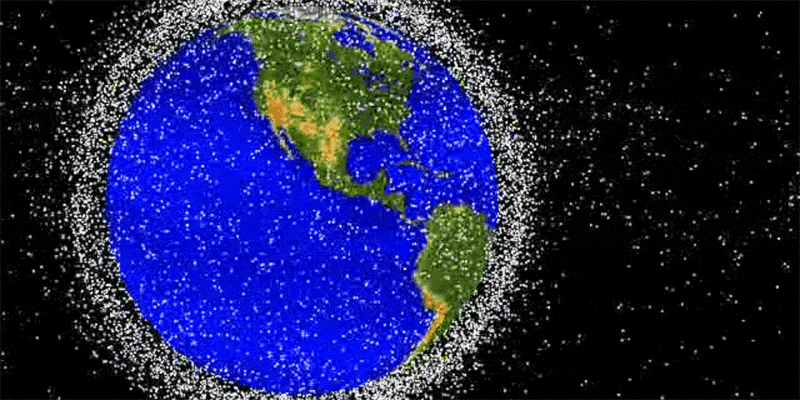The Biden administration has decided to implement a self-imposed ban on the testing of anti-satellite weapons, in part to highlight a Russian test in November that created a dangerous field of space debris, two sources familiar with the matter tell NBC News.
Vice President Kamala Harris is expected to announce the move Monday during a visit to Vanderburg Space Force Base in California, the sources said.
According to a document obtained by NBC News, administration officials told Congress the move was designed to address “the most pressing threats to the security and sustainability of space, as demonstrated by Russia’s November 2021 destructive direct-ascent ASAT missile test.”
On Nov. 15, 2021, an interceptor missile launched in northern Russia struck a Soviet-era COSMOS 1408 satellite, generating a massive debris field in low-Earth orbit of more than 1,500 pieces of trackable debris, U.S. Space Command has said.
Such tests undermine the long-term stability of space and imperil space exploration, the administration told Congress.
Republicans are skeptical of a unilateral test ban that Russia and China are unlikely to sign on to, a GOP congressional aide said.
An administration official declined to discuss the announcement, but said, “the visit to Vandenberg Space Force Base demonstrates the vice president’s continued engagement on space. The vice president will be discussing our ongoing work to develop norms in space that advance U.S. and international interests and preserves the security and sustainability of space.”
The official added that Harris will meet with members of the U.S. Space Force and Space Command, and that she is focused on “advancing norms for peaceful and responsible behavior in space.”
Harris is chairman of the National Space Council, which held its first meeting in December. “Without clear norms for the responsible use of space, we stand the real risk of threats to our national and global security,” she said at the meeting.
A think tank report issued earlier this month warned that Russia, China, Iran and North Korea are developing or improving anti-satellite weapons.
“So broad and deep is our collective reliance on space and space assets that these threats — from kinetic strikes, to other actions that create physical damage, to electronic, to cyber — should impel responsive actions within the United States, with our partners, and in a way that includes the private sector,” wrote former principal deputy director of national intelligence Sue Gordon, in a forward to the report.
Source: | This article originally belongs to Nbcnews.com











